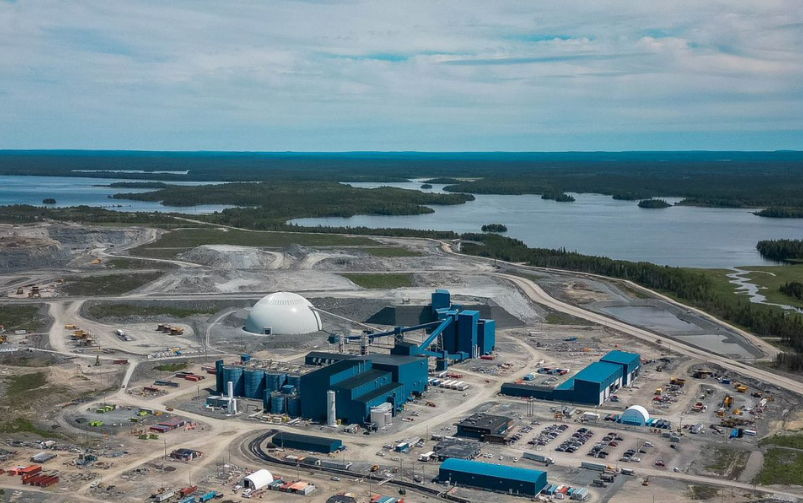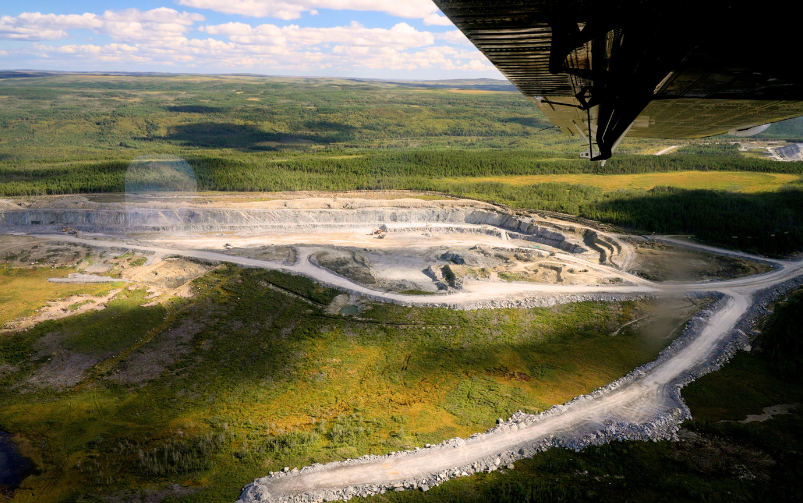The deal was inked on May 29 in Sudbury, Ontario. Left to right: Larry Roque, chief of the Wahnapitae First Nation, Gimaa (chief) Craig Nootchtai of the Atikameksheng First Nation, Paul Lefebvre, mayor of Greater Sudbury, and Kristan Straub, chief executive officer of Wyloo Canada. Courtesy of Wyloo Canada.
Wyloo Canada announced on May 29 that it aims to construct Canada’s first downstream battery materials processing facility in Sudbury. The facility would produce low-carbon nickel sulfate and nickel-dominant pCAM, two ingredients that are crucial for the production of electric vehicle (EV) batteries. Nickel for the facility would come mainly from the company’s proposed Eagle’s Nest mine, located in the Ring of Fire region of Ontario. The facility would also use nickel from other third-party sources located in North America.
The signing of the memorandum of understanding (MOU) took place in Sudbury at the BEV In-Depth: Mines to Mobility conference. “The urgency to bolster North America's capacity for processing metals—in particular, nickel—has never been more apparent. Our facility will be the missing piece that builds the capacity to process battery materials right here in Sudbury,” said Kristan Straub, Wyloo’s chief executive officer, in a May 29 press release.
The company explained that Sudbury was chosen as the construction location due to its global leadership in the mining industry, its transition to clean technologies and its sustained commitment to reconciliation with Canada’s Indigenous communities.
“Greater Sudbury has the land, the talent and the resources that are needed for the future of mining and BEV technology, as demonstrated by Wyloo selecting our community for the first Canadian facility of this kind,” said Paul Lefebvre, the mayor of Greater Sudbury, at the press conference about the announcement.
“We look forward to continuing the conversation and developing a partnership with Wyloo for this project,” said Atikameksheng Anishnawbek Gimaa Craig Nootchtai in the May 29 press release. “Working together ensures our traditions and culture are incorporated in the economic development of the lands.”
Wyloo previously signed an MOU with the Indigenous communities of Marten Falls and Webequie on Dec. 6, 2022. The company is working towards partnership agreements that will offer long-term economic development opportunities for these communities.
If constructed, the facility would have the capacity to refine and purify nickel from the Eagle’s Nest mine and other third-party sources, and would then be able to produce pCAM, a critical ingredient needed to make EV batteries.
Constructing the facility is expected to cost around $900 million and it could potentially open in 2030. If it proceeds, the facility would create hundreds of jobs.
Construction for the Eagle’s Nest mine is expected to commence in 2027, with construction of the processing facility estimated to begin around 2030, following completion of the mine. Wyloo stated it is currently in the process of completing a scoping study for the proposed mine and will continue with mine planning and environmental studies for the remainder of this year, while it aims to begin permitting work in 2025 and to update its feasibility study in the same year.




